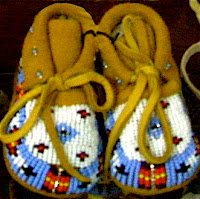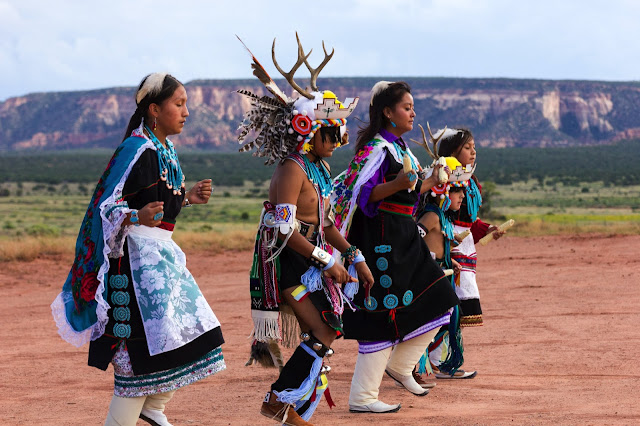Lost children’s annual memorial march: Event called for reform of Iowa’s parental-rights laws
Published by Indian Country Today in 2010. For more on topics like this, see my book, American Apartheid: The Native American Struggle...
Restoration of parental rights was the theme of the Eighth Annual Memorial March to Honor Our Lost Children, organized each year for the day before Thanksgiving by Four Directions Community Center, a Sioux City nonprofit. In preparing for the event, the group’s executive director, Frank LaMere, Winnebago Tribe of Nebraska, encouraged participation by Native people who have had children taken from them by the Iowa child-welfare system or because of involvement with the courts.
About 200 responded to his call over the course of November 24, a blustery day with freezing rain that made the start of the march — across the Missouri River bridge that connects South Sioux City, Nebraska, with Sioux City, Iowa — a challenge for young and old. “We cross the bridge because many of Iowa’s Native people came here from Nebraska in search of a better life,” explained Four Directions program director Judy Yellowbank, Winnebago Tribe of Nebraska. “Instead, they faced the breakup of their families.”
“The wind and icy conditions on the bridge were particularly difficult this year, but that part of the march is always a test of our resolve,” said LaMere. “We must make that crossing, though, because we are renewing a commitment to our forebears, who believed they’d improve their lives by coming here.”
Marchers’ other stops included the Woodbury County Courthouse, where officials preside over what Yellowbank described as the rupture of Native families, and the Trosper-Hoyt County Services Building, where state department of human services offices are located.
The day’s events also included a rally and press conference, at which a proclamation from Iowa’s Governor Chet Culver was read. He praised the efforts of the Iowa Commission on Native American Affairs, which has joined Four Directions in condemning disparities in state agencies’ treatment of Native people. Both groups have called for improvements, including enforcement of the Indian Child Welfare Act and preparation of legislation to restore parental rights to those who have lost them but are now in a position to reunite their families.
ICWA appears to be flouted to an alarming degree in the county surrounding Sioux City, which has a relatively large Native population. As a result, Native parents and grandparents there are losing custody of children to foster care and adoption at what many call a disproportionate rate. Preston Daniels, head of Iowa’s human rights department, under whose aegis the Native American commission operates, has called the problem a major one and has spoken out in favor of parental-rights restoration.
LaMere described the eight-year history of the march as an odyssey, starting with suspicion and obstruction on the part of the non-Native community. The first year, for example, a sheriff tried to stop the marchers from entering the courthouse. Yet that day also saw progress: a judge invited LaMere and others to come into his chambers and talk about their grievances. “We began to build a bridge between the Native and non-Native communities at that moment,” recalled LaMere. “Now, eight years later, we have a better relationship with the state department of human services and the governor is praising what we’ve done and talking about its importance. These are all breakthroughs.”
He also noted that the parental-rights restoration effort, if successful, would help all children and families, not just Native ones. “We Indians are bold enough to do this, and the state of Iowa may be bold enough to pass parental-rights legislation. If so, life will improve in all communities, not just ours.”
The day ended with a memorial midday meal at Four Directions’ Sioux City building. LaMere said no one forgets that the entire event is a memorial occasion. “We pray together several times throughout the day. And when we get to Four Directions, we have chairs set up with star quilts, food offerings, and toys for the Native children who died after being taken from their families. Their prayers, and those of the hundreds or even thousands of other children who’ve asked the Creator to let them remain with their families, are very powerful. They are part of the grand design that brought us all here.”
The design was apparent throughout the day, said LaMere. Graduates of Four Directions’ parenting classes reported that they were out of the health-and-human services thanks to the courses, and the family of a boy who’d been adopted away from his Native mother saw a television program showing her marching and carrying a poster with his baby picture. The adoptive mother and son called Four Directions to make contact with the biological mother, who called the reconnection a miracle.
Text c. Stephanie Woodard; photo courtesy Red Cloud Heritage Center gift shop.
Text c. Stephanie Woodard; photo courtesy Red Cloud Heritage Center gift shop.


